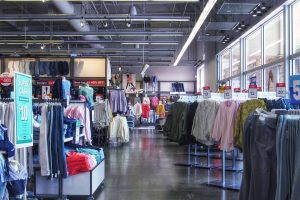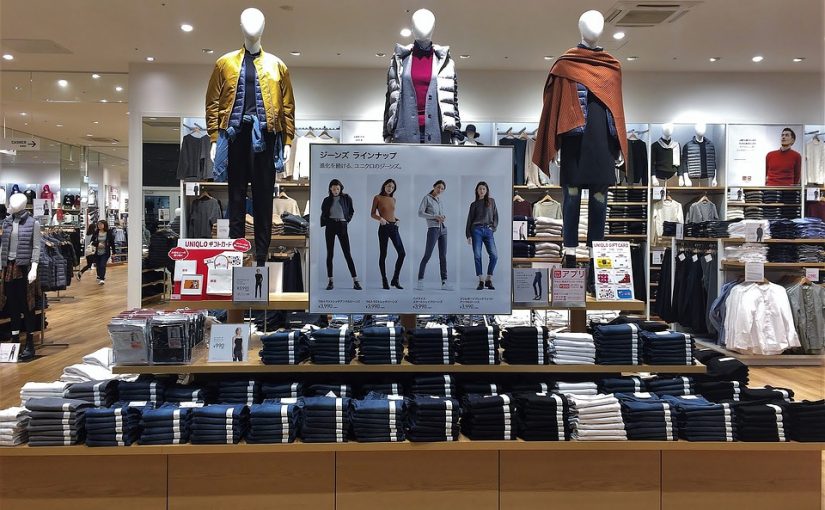Retail establishments have a large amount of foot traffic compared to other businesses. This can cause a larger amount of risk to be elevated for both general liability and workers compensation claims. Because of more frequent contact between employees and the general public, employees are more likely to come down with the flu or the common cold. These days missed from work may or may not cause a workers compensation claim, but they definitely contribute to a loss of productivity. When one employee is out sick other employees have to pick up the slack for that missing employees. This may create risks in other areas of the business. Slips, Trips, and Falls are the most common problem in retail establishments.

Retail stores vary based on what they sell, where they are located, what other and what other services they offer. Additional risks may be taken on by businesses that offer delivery and installation of products. In some instances, these services are offered by vendors who rent space from the store. Because of the vast differences in the types of retail establishments, there are a number of different classification codes for employees working at a retail establishment. It is important to make sure all employees are classified properly.
What can Retail Owners and Operators due to save on Commercial Insurance?
Partner with an Independent Agent
When a Retail Business partners with an independent insurance agent, they are able to get multiple quotes from multiple carriers all with one phone call. This is because an independent agent partners with many carriers to find the right solution to their clients needs. A captive agent is limited to the offerings of the carrier they represent. Partnering with an independent insurance agent makes it easier to get multiple quotes from one agent and they can give you unbiased advice about both the pros and cons of each policy. They also can give you insight into the positives and negatives of doing business with each carrier. This allows the business owner to know what they are getting into with the relationship with their insurance carrier.
Shop Around your Policies
One of the best things an independent insurance agent can do for a business owner is help them shop around their policy from year to year. It is not wise to switch on the drop of a hat because of a slight drop in price, but it is smart to make sure your carrier is competitive with the marketplace. An independent insurance agent can get multiple quotes all in one place. It may be a good idea to also contact a few captive agents and maybe even another independent insurance agent. Now if you like your agent, it may be worthwhile to pay a small amount more in order to continue your relationship with them. It is equally important to shop around to make sure your agent has your best interest in mind as well as your carrier.
Safety Programs
Having a well-documented safety program in place is essential for retail stores. It should be an extensive part of the new hire training and it should be done regularly throughout the year with all employees. These do not have to be extensive training programs. They can be as short as a 15 minute conversation or even watching a workplace safety video. They should always be documented and they should occur on a regular basis. The frequency of your meetings is dependent upon your business and the workplace safety expert you consult. It is helpful to create a committee to be in charge of the workplace safety program. This is important because these employees can be supporters of the program and can garner support throughout all employees.

What Types of Insurance Should a Retail Business Have?
- General Liability Insurance
- Property Insurance
- Inland Marine Coverage
- Workers Compensation Insurance
General Liability Insurance
General Liability Insurance protects a business from common Slips, Trips, and Falls. These types of claims are higher in this industry because of the amount of foot traffic throughout the facility. It is important to remember that General Liability Insurance is not all encompassing. There are exclusion to every policy and every carrier has their own specifics. It is important to speak long and honestly with your agent about all the intricacies of your business in an attempt to properly insure your business.
Commercial Property Insurance
Business Property Insurance are not huge for retailers. Most facilities include some form of electrical wiring as well as heating and cooling systems. It is important to make sure the facility is in proper condition. Creating a safety committee to periodically check the status of the facility.
Inland Marine Coverage
Inland marine insurance is designed to protect equipment that is frequently in transit or stored at a third party location. If the retail business has pop-ups at other locations, inland marine is needed to protect the equipment being used away from the location.
Workers Compensation
Retail Shops have a large amount of risks when it comes to Workers Compensation Insurance. A majority of these risks stem from the amount of exposure to foot traffic. Developing a safety program to deal with these risks and starting the training of this program from the day a person is hired, is the best way to limit the frequency and severity of claims.

SIC Business Insurance Codes:
- 5311: Department Stores
- 5722: Appliance Stores
- 5941: Sporting Goods Stores and Bicycle Shops
- 5651: Family Clothing Stores
- 5912: Drug Stores and Proprietary Stores
- 5331: Variety Stores
- 5399: General Merchandise Stores
- 5932: Used Merchandise Stores
NAICS Liability Classifications:
- 452111: Department Store
- 452112: Discount Stores
- 443141: Household Appliance Stores
- 451110: Sporting Goods Stores
- 448140: Family Clothing Stores
- 446110: Pharmacies and Drug Stores
- 452990: Other General Merchandise Stores
- 442299: Home Furnishing Stores
- 453310: Used Merchandise Stores
Business ISO General Liability:
- 12356: Department or Discount Stores
- 10026: Antique Stores
- 18206: Sporting Good or Athletic Equipment Stores
- 11127: Clothing and Apparel Stores
- 12374: Drugstores—No Food or Beverage
- 18911: Variety Stores
- 11155: Coin, Stamp and Book Stores
- 16881: Secondhand Stores
Common Workers Compensation Class Codes:
- 8039: Retail Department Stores
- 8044: Furniture Store and Drivers
- 8008: Clothing and Apparel Stores
- 8045: Retail Drug Stores
- 8017: Stores, Retail—Not Classified Elsewhere
- 8010: Hardware Stores
- 8013: Jewelry Stores
- 8046: Auto Parts and Accessories Stores

